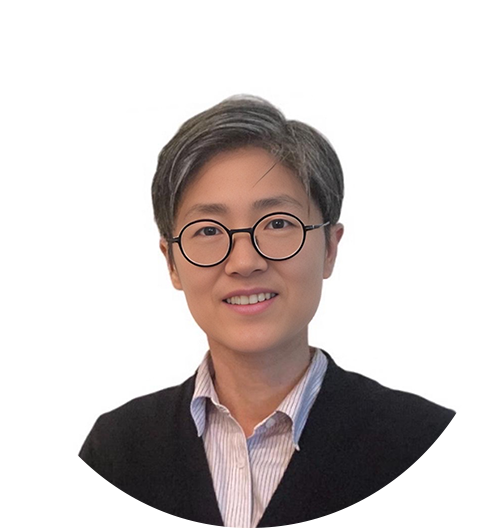
Dr. Chad Ebesutani, Ph.D.
This therapist has over 16 years of experience.
Dr. Chad Ebesutani, Ph.D., is a US and Korea Licensed Psychologist and a TRICARE-Certified Clinical Psychologist. He served as a Psychology Professor for over 10 years and is the Founder, CEO, and Director of the Seoul Counseling Center. He was born and raised in Hawaii and lived in different parts of America including California, Rhode Island, and Mississippi. He also spent some time living in other countries, such as Canada and Australia, and he now resides in South Korea.
Biography
Dr. Chad Ebesutani graduated from Brown University and earned his PhD from UCLA. He served as an Associate Professor in the Psychology Department of Duksung Women’s University in Seoul, Korea for over 10 years and is currently the CEO and Director of the Seoul Counseling Center. He stays current with the latest mental health practices and has published over 90+ articles in peer-reviewed scientific journals.
As a Gates Millennium Scholars Alumni, he consults for PracticeWise and served as Noom Korea’s Psychology Advisor. Dr. Chad has written for the Korea Times, shared career advice in Nature, and has been interviewed for other news articles related to mental health issues in Korea. Dr. Chad developed the SEEDS Assessment (a social-emotional assessment) and the Revised Child Anxiety and Depression Scale – Parent Version (RCADS-P), as featured in the Handbook of Pediatric Psychological Screening and Assessment in Primary Care. He led a multi-year government-funded study on the mental health benefits of app-based coping and resiliency skills for children and families and he continues to support school-based well-being initiatives internationally with his colleagues.
Psychological Alignment
Dr. Chad believes that Psychological Alignment—aligning our values, thoughts, words, and actions—is the key to personal, professional, and social transformation. When we stay true to what we believe, think, say, and do, we build a more connected and hopeful world. When we don’t, we become misaligned, confused, and full of conflict.
To achieve Psychological Alignment, we must align our:
- Values – What we stand for
- Thoughts – How we perceive the world
- Words – What we communicate
- Actions – How we behave
When these are in sync, we can:
✅ Renew hope and meaning
✅ Rebuild strength and responsibility
✅ Reunite families and friendships
✅ Restore faith and trust
By living in alignment, we create positive change—within ourselves and in the world.
Therapy Approach
My original training in Cognitive Behavioral Therapy (CBT) has evolved into a highly integrative approach. I not only listen and empathize with your experiences but also help identify patterns in your behaviors, thoughts, and emotions. I assist you in recognizing positive patterns and breaking negative ones, teaching skills to overcome these harmful habits. We will explore barriers hindering your pursuit of happiness and joy. Understanding how life can wear you down, I use Motivational Interviewing to strengthen your inner motivation to pursue meaningful goals. Integrating Acceptance and Commitment Therapy (ACT), I help you identify your true values and support you in living them out despite emotional challenges. Every session aims to be truly meaningful and for you.
❤️🩹 For those suffering from pain, I offer you my thoughts:
You are not wrong to struggle. Pain is an undeniable part of life, and you are not alone in it. Rising above it may be one of our greatest purposes, as we become our own kind of hero. When life feels hopeless, we must find comfort in even the faintest feelings of love, power in growth, and meaning beyond our suffering. I know it isn’t easy, but facing life’s challenges with this grace helps make the world a little brighter for those we love—or may love one day. Pain is real, but so is its antidote. With this belief, we can live with purpose, hope, and resilience. Choosing to see light isn’t always simple, especially when lost in its shadows, but that’s why we need each other—to find our inner strength, keep moving forward, know when to let go, and never give up.
Education
- PhD: UCLA (2011, Clinical Psychology)
- MA: University of Hawaii (2008, Clinical Psychology)
- BS: Brown University (2003, Psychology)
Certifications
- U.S. Licensed Psychologist (AL Board of Psychology, USA) #1808
- Korean Clinical Psychological Association, Clinical Psychologist License #921 (임상심리전문가)
- TRICARE-Credentialed Psychologist (TRICARE #103T00000X)
Publications
Anxiety/Depression
Ebesutani, C. K., Korathu-Larson, P., Nakamura, B., Higa-McMillan, C. K. & Chorpita, B.F. (in press). The Revised Child Anxiety and Depression Scale 25 – parent version: Scale development and validation in a school-based and clinical sample. Assessment. Gormez, V., Kilincaslan, A., Ebesutani C. K., Orengul, A. C., Kaya, I., Ceri, V., Nasiroglu, S., Filiz, M., Chorpita, B. F. (in press). Psychometric Properties of the Parent Version of the Revised Child Anxiety and Depression Scale in a Clinical Sample of Turkish Children and Adolescents. Child Psychiatry & Human Development. Ebesutani, C. K., Kim, M., & Park, H. (2016, August). The utility of the bifactor model in understanding unique components of anxiety sensitivity in a South Korean sample. Asian Journal of Psychiatry, 22, 116-123. Viana, A., Ebesutani, C. K., Young, J., Tull, M., & Gratz, K. (2012, December). Childhood exposure to parental threatening behaviors and anxiety symptoms in a sample of young adults: The mediating role of cognitive biases. Cognitive Therapy and Research, 36(6), 670-680. Price, M., Higa-McMillan, C., Ebesutani, C. K., Okamura, K., Nakamura, B., Chorpita, B., & Weisz, J. (2013, November). Symptom differentiation of anxiety and depression across youth development and clinic-referred/nonreferred samples: An examination of competing factor structures of the Child Behavior Checklist DSM-oriented scales. Development and Psychopathology, 25(4pt1), 1005-1015. Ebesutani, C. K., McLeish, A. C., Luberto, C. M., Young, J., & Maack, D. J. (2014, September). A bifactor model of anxiety sensitivity: Analysis of the Anxiety Sensitivity Index-3. Journal of Psychopathology and Behavioral Assessment, 36(3), 452-464.
Social Anxiety
Takishima-Lacasa, J., Higa-McMillan, C., Ebesutani, C. K., Smith, R., & Chorpita, B. (2014, December). Self-consciousness and anxiety in youth: The revised self-consciousness scales of children. Psychological Assessment, 26(4), 1292-1306. Higa-McMillan, C., & Ebesutani, C. K. (2011). The Etiology of Social Anxiety Disorder in Adolescents and Young Adults. In C. A. Alfano & D. C. Beidel (Eds.), Social anxiety disorder in adolescents and young adults: Translating developmental science into practice (pp. 29-51). Washington, DC: American Psychological Association.
Loneliness
Ebesutani, C. K., Fierstein, M., Viana, A. G., Trent, L., Sprung, M., & Young, J. (2015, March). The role of loneliness in the relationship between anxiety and depression in clinical and school-based youth. Psychology in the Schools, 52(3), 223-234. Ritchwood, T., Ebesutani, C. K., Chin, E., & Young, J. (in press). The Loneliness Questionnaire: Measurement Invariance across African American and Caucasian Youth. Assessment. Seo, W., Kim, M., Kim, J., Ebesutani, C. K., & Jo, I. (2015, December). The mediating effects of self-efficacy in the relationship between loneliness and social media addiction. The Korean Journal of Woman Psychology (한국심리학회지: 여성), 20(4), 443-458. Ebesutani, C. K., Drescher, C., Reise, S., Heiden, L., Hight, T., Damon, J., & Young, J. (2012, July). The Loneliness Questionnaire-Short Version: An evaluation of reverse-worded and non-reverse-worded items via item response theory. Journal of Personality Assessment, 94(4), 427 – 437. Ebesutani, C. K., Drescher, C., Reise, S., Heiden, L., Hight, T., Damon, J., & Young, J. (2012, March). The importance of modeling method effects: Resolving the (uni) dimensionality of the Loneliness Questionnaire. Journal of Personality Assessment, 94(2), 186–195.
Childhood Trauma
Stewart, R., Ebesutani, C. K., Drescher, C., & Young, J. (in press). The Child PTSD Symptom Scale: An investigation of its psychometric properties. Journal of Interpersonal Violence.
Obsessive-Compulsive Disorder (OCD)
Olatunji, B., Ebesutani, C. K., & Abramowitz, J. (2017, January). Examination of a Bifactor Model of Obsessive-Compulsive Symptom Dimensions. Assessment, 24, 45-59. Olatunji, B. O., Ebesutani, C. K., & Kim, E. (2015, March). Examination of a bifactor model of the Three Domains of Disgust Scale: Specificity in relation to obsessive-compulsive symptoms. Psychological Assessment, 27(1), 102-113. Olatunji, B. O., Ebesutani, C. K., Kim, J., Riemann, B. C., & Jacobi, D. M. (2017, April). Disgust proneness predicts obsessive-compulsive disorder symptom severity in a clinical sample of youth: distinctions from negative affect. Journal of Affective Disorders, 213, 118-125. Olatunji, B. O., Ebesutani, C. K., & Kim, E. (2016, December). Does the measure matter? On the association between disgust proneness and OCD Symptoms. Journal of Anxiety Disorders, 44, 63-72. Kim, J., Ebesutani, C. K., Wall, D., & Olatunji, B. (2012, January). Depression Mediates the Relationship Between Obsessive-Compulsive Symptoms and Eating Disorder Symptoms in an Inpatient Sample. Journal of Obsessive-Compulsive and Related Disorders, 1(1), 62-68. Olatunji, B., Ebesutani, C. K., David, B., Fan, Q, & McGrath, P. (2011, October). Disgust proneness and obsessive-compulsive symptoms in a clinical sample: Structural differentiation from negative affect. Journal of Anxiety Disorders, 25(7), 932-938.
Suicidality & Self-Harm
Suh, S., Ebesutani, C. K., Hagan, C. R., Rogers, M. L., Hom, M. A., Ringer, F. B., Bernert, R. A., Kim, S., Joiner, T. E. (2017, May). Cross-cultural relevance of the interpersonal theory of suicide across Korean and U.S. undergraduate students. Psychiatry Research, 251, 244-252. Olatunji, B. O., Cox, R., Ebesutani, C. K., & Wall, D. (2015, June). Self-harm history predicts resistance to inpatient treatment of body shape aversion in women with eating disorders: The role of negative affect. Journal of Psychiatric Research, 65, 37-46.
Sleep Problems
Cox, R., Ebesutani, C. K., Olatunji, B. (2016, February). Linking poor sleep quality and maladaptive repetitive thoughts: The mediating role of executive functioning. Cognitive Therapy and Research, 40, 107-117.
Parenting Strategies
Viana, A. G., Stevens, E. N., Dixon, L. J., & Ebesutani, C. K. (2016, October). Parental Emotion Socialization Strategies and their Interaction with Child Interpretation Biases among Children with Anxiety Disorders. Cognitive Therapy and Research, 40(5), 717-731. Chung, K., Ebesutani, C. K., Bang, H., Kim, J., Chorpita, B., Weisz, J., Suh, D., & Byun, H. (2013, June). Cross-cultural differences in parental reporting styles between Korea and the US: Relationship between parenting stress and youth problem behaviors. Child Psychiatry and Human Development, 44(3), 460-468.
Cognitive Behavioral Therapy & Evidence-based Treatments
Ebesutani, C. K., Helmi, K., Fierstein, M., Taghizadeh, M., & Chorpita, B. (2016, March). A Pilot Study of Modular Cognitive-Behavioral Therapy and Cognitive-Behavioral Hypnotherapy for Treating Anxiety in Iranian Girls. International Journal of Cognitive Therapy, 9(1), 13-37. Ebesutani, C. K., Daleiden, E., Becker, K., Schmidt, L., Bernstein, A., Rith-Najarian, L., Lyons, J., & Chorpita, B. (in press). Facilitating communication of ideas and evidence to enhance mental health service quality: Coding the treatment services literature using the Child and Adolescent Needs and Strengths-Mental Health assessment scales. Journal of Child and Family Studies. Chorpita, B., Daleiden, E., Ebesutani, C. K., Young, J., Becker, K., Nakamura, B., … Starace, N. (2011, June). Evidence Based Treatments for Children and Adolescents: An Updated Review of Indicators of Efficacy and Effectiveness. Clinical Psychology: Science and Practice, 18(2), 154-172. Bernstein, A., Chorpita, B., Daleiden, E., Ebesutani, C. K., & Rosenblatt, A. (2015, December). Building an Evidence-Informed Service Array: Considering Evidence Based Programs as well as their Practice Elements. Journal of Consulting and Clinical Psychology, 83(6), 1085-1096. Bernstein, A., Chorpita, B., Rosenblatt, A., Becker, K., Daleiden, E., & Ebesutani, C. K. (2015, January). Fit of Evidence-Based Treatment Components to Youths Served by Wraparound Process: A Relevance Mapping Analysis. Journal of Clinical Child and Adolescent Psychology, 44(1), 44-57. Ebesutani, C. K., & Choi, S. (2014, March). The Validation of the Korean Version of the Knowledge of Evidence-based Services Questionnaire. Korean Journal of Health Psychology (한국심리학회지: 건강), 19(1), 119-146. Ebesutani, C. K., & Shin, S. (2014, November). Knowledge, attitudes, and usage of evidence-based assessment and treatment practices in the Korean mental health system: Current status and future directions. 한국 정신건강체계에서의 근거기반 평가 및치료의 태도, 지식, 사용에 관한 연구. The Korean Journal of Clinical Psychology (한국심리학회지: 임상), 33(4), 875-901.











Recent Posts
General
Cognitive Behavioral Therapy in Korea
Seoul Counseling Center offers in-person and online Cognitive Behavioral Therapy (CBT) to identify negative thoughts and unwanted behavioral patterns, changing [...]
Jan
General
Nurturing Mental Well-being into the New Year
As we embrace the New Year, it’s a good time to reflect on our mental health and well-being. Instead of [...]
Dec
General
Navigating Your Emotionally Focused Therapy (EFT) Journey: What to Learn, Expect, and Take Away
Seoul Counseling Center offers Emotionally Focused Therapy (EFT), which is a powerful, research-backed approach to fostering stronger emotional connections and [...]
Dec
General
English-speaking Psychiatrists in South Korea
Seoul Counseling Center has compiled a list of psychiatric facilities in South Korea staffed with English-speaking mental health professionals.
Mar